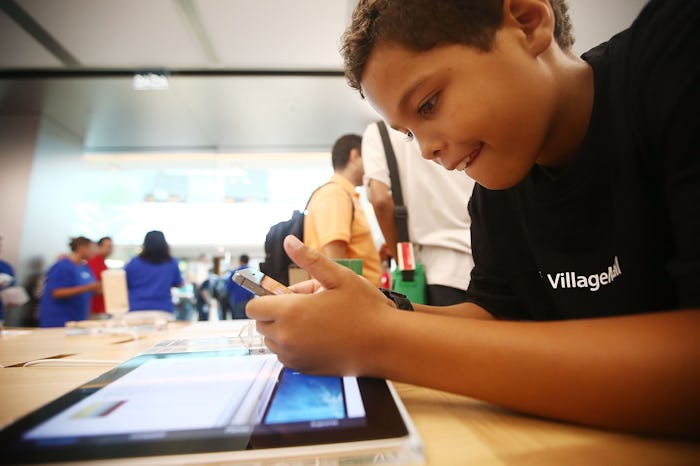Life

Amazon Makes Managing Kids' Online Habits A Breeze
If their parents let them, lots of kids would be happy to spend an entire sunny Saturday indoors, glued to their tablets, watching videos, and playing games — and maybe even perusing an eBook or two. So, tech companies have been rolling out tools to set limits on the amount of time kids spend online and to ensure the content they can access on the web is age-appropriate. Now, Amazon is enhancing parents' monitoring capabilities to do that, in the form of the Amazon Parent Dashboard, a new feature for the existing FreeTime app that breaks down exactly how kids are using their screen time.
The Parent Dashboard went live Wednesday, and is available to families that access the FreeTime app's premium content by subscribing and those who use the free version, according to The Verge. Basically, parents already had the ability to set up the app on their kids' Amazon Fire Kids Edition tablets or Kindle so that the 3- to 12-year-olds would be able to access only moderator-approved webpages. FreeTime enabled parents to limit the amount of time that kids spent with any type of media online, but the new, free Parent Dashboard feature takes it a step further.
Using Parent Dashboard, parents can see how much time their kids spend online, as well as track exactly what they did on the internet each day. Not only does the Parent Dashboard show how long kids spend reading books, watching videos, using apps, and browsing the web, but it also show exactly what they reading, watching, playing, and discovering online.
Because of the restrictions and careful vetting associated with the FreeTime app, the chances that kids plugged in through it are engaging in online activity parents wouldn't approve of is slim. Instead, the Parent Dashboard acts as somewhat of a tool to allow parents understand their plugged-in children's interests and to connect with them as a result. That's why Amazon is unveiling "Discussion Cards" as part of the Parent Dashboard feature, TechCrunch reported. Essentially, the Discussion Cards give parents a quick synopsis of what kids are watching, reading, and playing, complete with suggested discussion questions.
For the title Splat the Cat, for example, questions include "Why do you think Splat is nervous?" and "What helps Splat get over his fear?"
Lots of tech companies are working to distill the big, scary, noxious world of the adult internet into a safe space for children still learning to navigate it. Google, for example, is testing out its Family Link, which gives parents the power to customize their kids' internet experiences based on age and individual maturity levels.
Tools like this allow parents to rest a little easier knowing their kids aren't communicating with strangers or accessing adult content online, which is a huge plus when social media makes that easier than ever. Apps like FreeTime ensure that the best of the internet — education and innocent fun — shines.